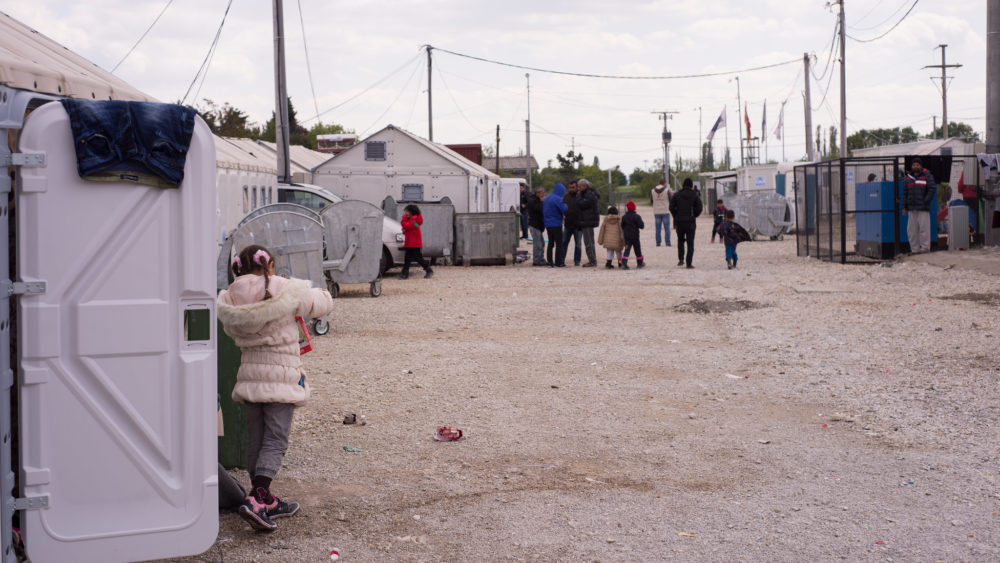The Green New Deal for Europe offers a path to justice for migrant women and girls
There is a crisis developing from the way the EU, and especially the European Commission, handles the inflow of migrants: women and girls are ignored in the pact on migration and asylum of the EU.
Women and girls are fleeing their countries escaping wars and economic hardships, fearful for their lives and their bodies. Right now, the majority of EU funds meant to deal with migration is earmarked for selling weaponised externalised borders, especially to Africa. These practices of fortress capitalism are unethical and discredit the EU as a partner in northern and central Africa. The millions spent on weaponising migration could be better spent on programs to combat the causes that endanger so many women, among them the effects of global warming, for which Europe is historically responsible. Solidarity is safety.
The EU migration asylum pact caters to the far-right
The “pact on migration and asylum” of the EU seems to have been written to cater to the far-right and right-wing populist rhetoric. When the pact on migration was released in 2019, the European network of migrant women – ENMW — had this to say : “the new Migration and Asylum Pact fails to acknowledge women and girls — there is practically no mention of female migrants as if this group does not exist and does not make up more than 50% of the global population — and to take concrete actions in protecting them.”
While women as a category is not catered or accounted for, it follows that there would be no accounting for the needs and vulnerabilities of underage and unaccompanied girls, adolescent girls, queer, transwomen, or women and girls with disabilities: an invisibility that exacerbates insecurity and precariousness.
What are women and girls fleeing from?
Women are typically described in their immigration forms in relation to a male figure or a parent: either “their man” (“spouse of”), or “mother”, offering little information that could point to the reasons for their migration and what they may be fleeing from. However, the current trend for migrant women being displaced is that they are increasingly doing so alone or as heads of their households.
Women tend also, among other reasons, to migrate as an escape from domestic violence, unhappy marriages, or the pressures of arranged marriage. Women also often flee for economic reasons or financial pressures. However in the EU, for example, the “skills and talent” migration policy is only targeted at those migrant workers in countries where studying is accessible to girls. For women who have managed to migrate, the UN warned that 3000 cross-border women between Morocco and Spain live in inhumane conditions harvesting fruits — conditions that have been made worse in times of COVID-19.
According to the UN, women suffer disproportionately from climate change’s effects because of gender inequality both at home and professionally. As climate change exacerbates migrations, there are concrete ways in which communities can address the impacts and it makes a difference when women are informed, prepared and empowered.
Aside from climate change, women and girls also escape from conflict, and as the ENMW report states, they break free from “persecution or other situations that endangers their security and dignity, prostitution, forced marriage, rape and sexual abuse, female genital mutilation, exploitation, cultural exclusion, community control, ethnic glass ceiling.” This has tragic consequences on women’s bodies: “It is impossible to meet a Sub-Saharan woman who has travelled to Morocco and who hasn’t suffered from sexual violence on the way or on the border. The rare women who have not been harmed are isolated cases”.
According to the UNFPA report, on top of their reasons for migration, women are positioned in situations that are unfavorable to them as migrants. Women comprise the vast majority of migrant domestic workers which exposes them to exploitation, abuse, and trafficking. In the countries they move to, migrant women are also often exposed to sexual harassment and discrimination while seeking work, housing, or health services. In transit and arriving at their destination, women are continuously faced with barriers and risks.
Addressing migrant women and girls through targeted policies
The European Union should reassess the commission’s work regarding women and girls’ migration policies because their vulnerabilities are neither accounted for nor are they addressed.
The use of border-externalisation is unsafe for migrant women and girls and serves instead to boost the European military-industrial complex, on the one hand, and the admission of a temporary low-cost contractless workforce, on the other. And could this be an indication of the way EU countries may in the future treat Europeans suffering climate change?
Do we owe them reparations for all the fortunes we brought back from their birthplace for centuries? DiEM25’s Green New Deal for Europe proposes the Environmental Justice Commission in order to address this pressing issue.
At DiEM25, we stress that these situations should be carefully analysed in the context of other cultures as well. The instability in the regions where migration starts is too often the consequence of extractivist and neo-colonial policies perpetrated for centuries in the Global-South, to the direct benefit of G7 countries.
It is clear that these problems are all interlinked, and that the continuing confrontational attitude on the part of rich partners (often hidden behind offers of funding) to developing countries and their specific problems must be replaced by a constructive approach that sets all forms of collaboration firmly in a context of respect, absolute equality of human rights, and historical consciousness.
Photo Source: UN Women on Flickr.
Do you want to be informed of DiEM25's actions? Sign up here















